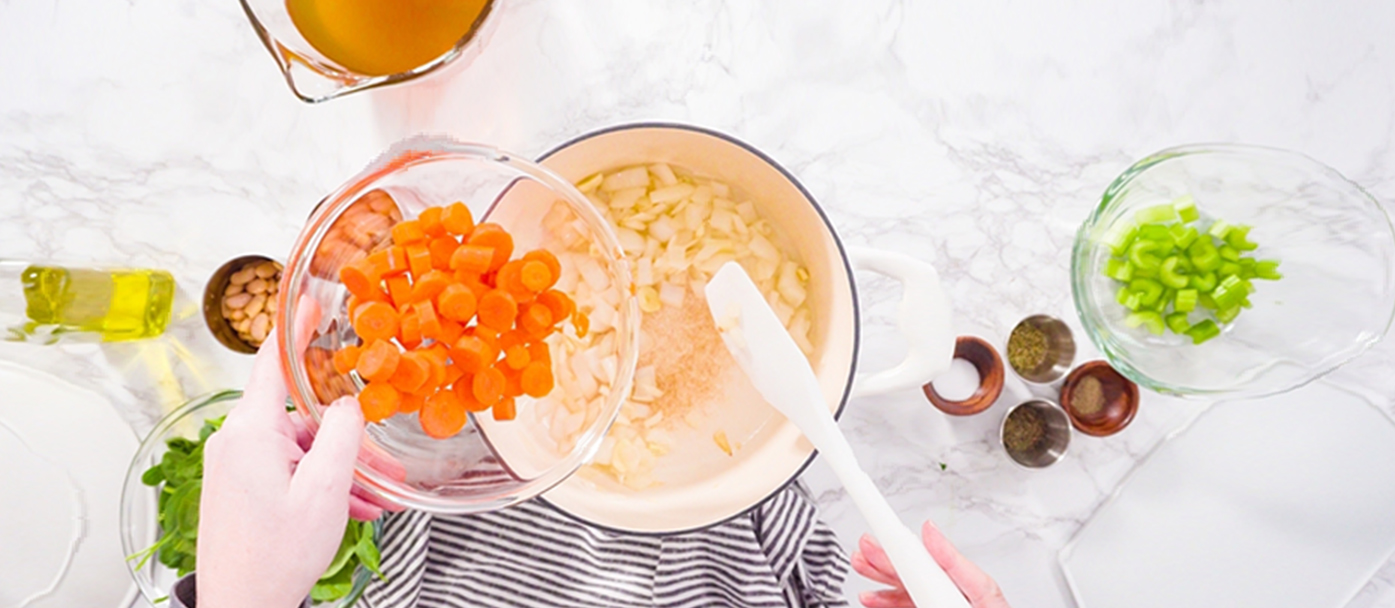Dice carrot, celery and onion. Combine the vegetables in a soup pot with vegetable broth and cannellini beans. Bring to a boil. Cover and reduce heat and let simmer for 10 minutes. Remove from heat and allow time to cool. Place soup into blender and purée until consistency is smooth. Add salt and pepper to taste. This soup can be made prior to surgery and stored in the freezer.
Quick Post-Surgery Snacks
- Salmon or Tuna Salad Sandwich
Mix canned salmon or tuna (drained) with mayonnaise or plain Greek yogurt for extra protein and your favorite salad fixings. Serve on toasted whole-grain bread with a side of fruit.
Fatty fish like salmon and tuna are a great way to get some omega-3 fatty acids, and this recipe requires minimal effort, making it easy to assemble post-surgery.
- Greek Yogurt with Berries and Granola
Top Greek yogurt with fresh or frozen berries and low-sugar granola. Add chia seeds for omega-3 fatty acids.
Greek yogurt with chia seeds makes for a great nutrient-dense breakfast or snack, since it includes protein, vitamin C and antioxidants.
Place eggs in a large saucepan and cover with an inch of cool water. Cover the pan with a lid and bring to a boil. Once boiling, reduce to medium heat and let sit for 6 to 7 minutes for a perfect hard-boiled egg. Allow eggs to cool in a shallow ice bath for a few minutes to make them easier to peel.
Eggs are a convenient source of high-quality protein for breakfast or a mid-day snack.
Supplements to Support Healing
Sometimes fatigue or a low appetite can make it challenging to stick to nutrition recommendations after surgery. Oral nutritional supplements such as Ensure® Surgery can help fill in any gaps and help you meet your nutritional needs for recovery from surgery.
"Nutrition is important for surgical recovery, and adding an oral nutritional supplement to your post-surgery meal plan can help you get nutrients you need," said Bridget Cassady, Senior Research Scientist at Abbott Nutrition. "Ensure Surgery is specifically formulated with high-quality protein, arginine and omega-3 fatty acids from fish oil to help your body recover from surgery."
Adequate nutrition after surgery is a critical component of recovery. Incorporating nutrients from food and oral nutritional supplements can fuel your body with what it needs to spring back.
Keep in mind that your healthcare provider may give you specific post-operative instructions about what you can and cannot eat. Depending on the type of surgery you had, you may need to tailor recipes to suit your post-surgical nutrition needs. Make sure you understand your healthcare provider's post-care recommendations and reach out to them with any questions.




Social Share